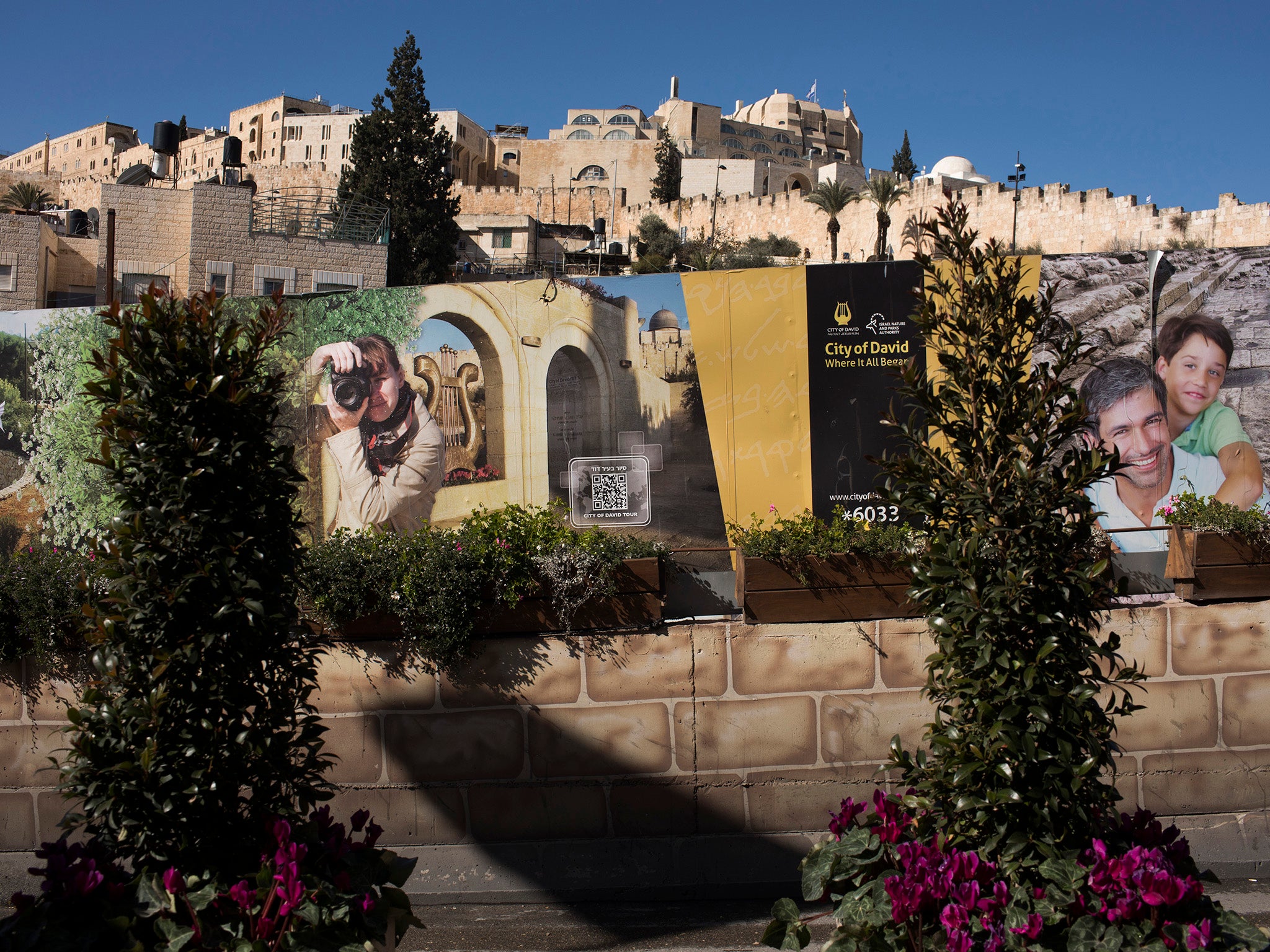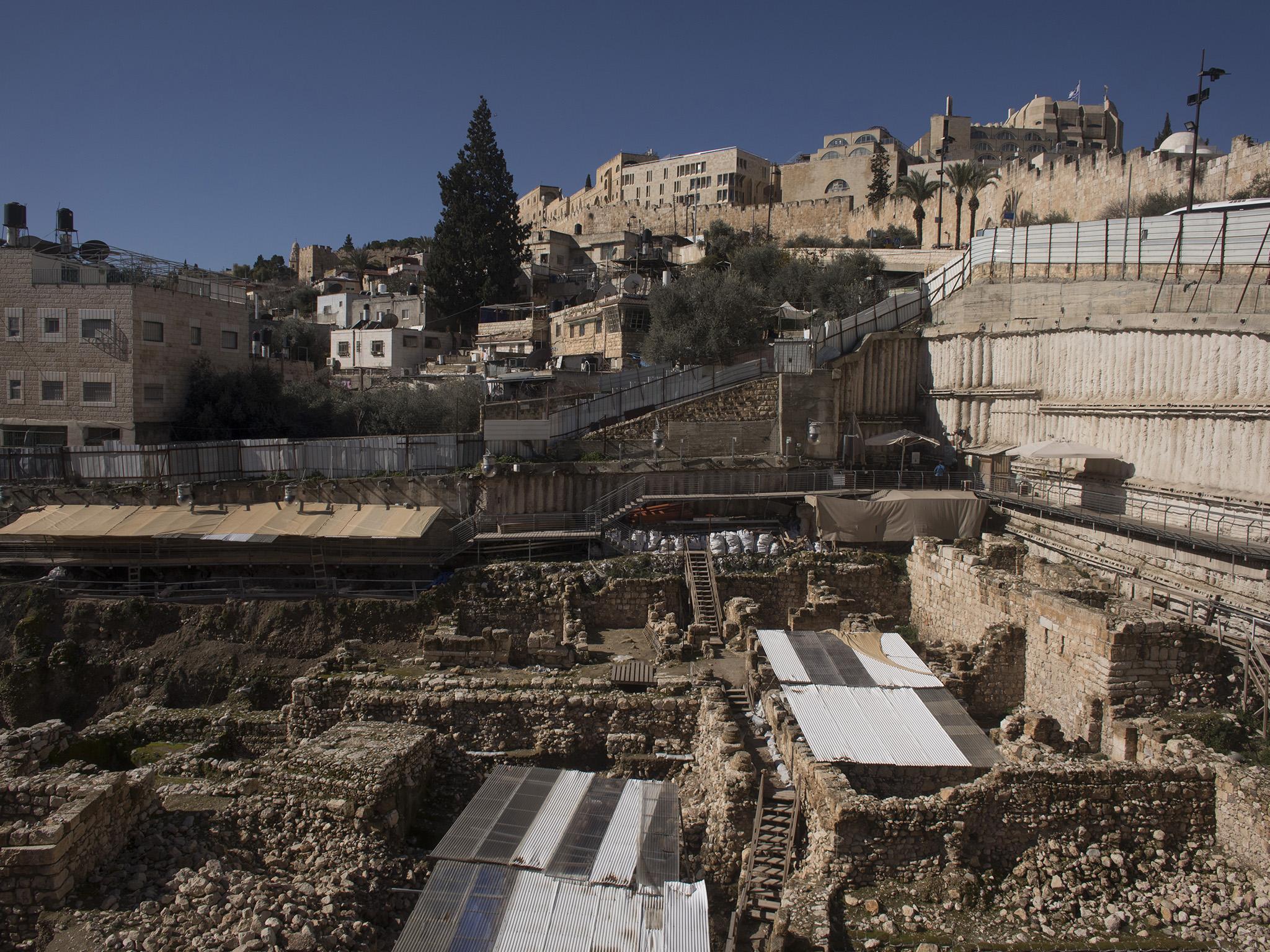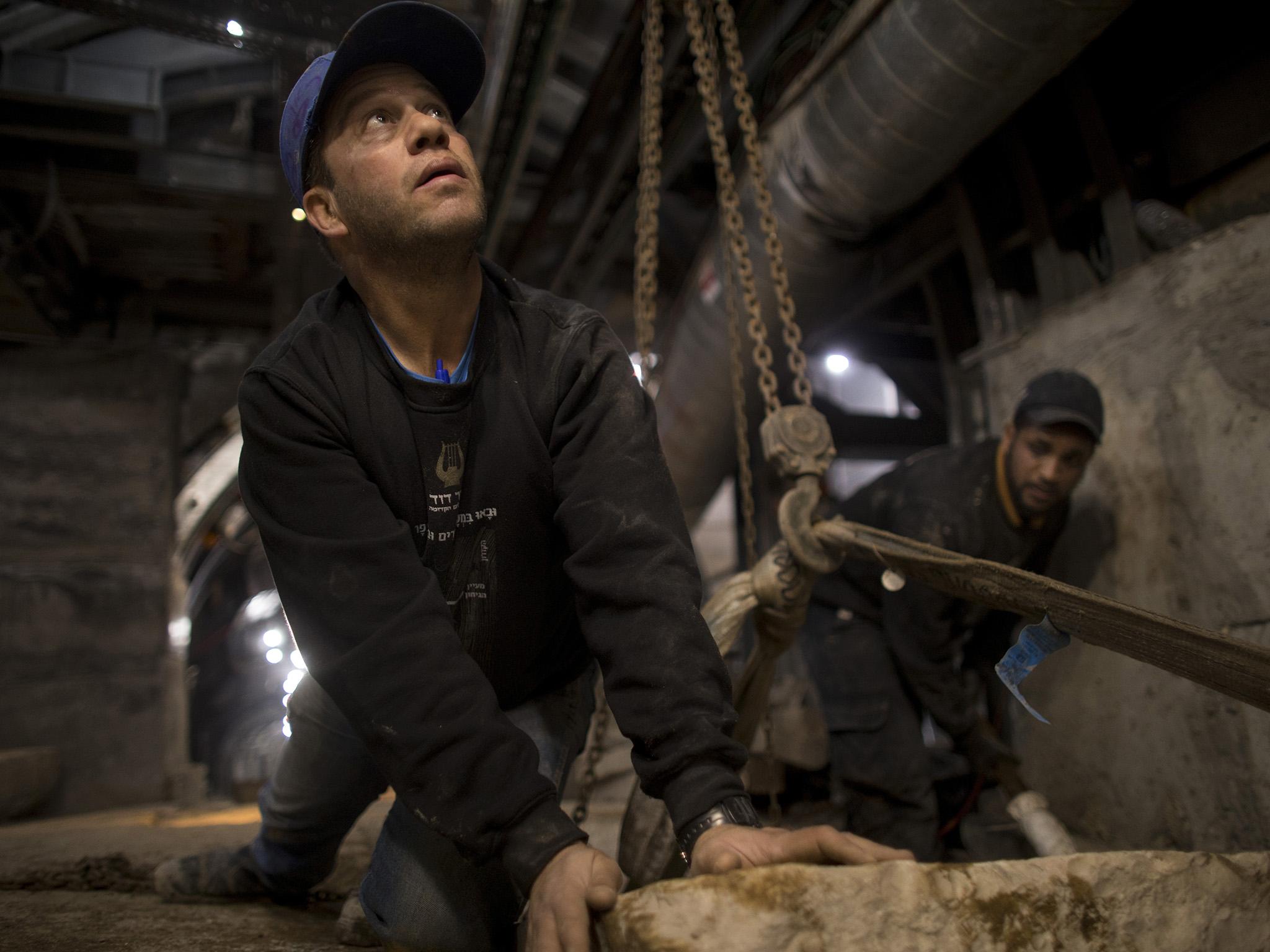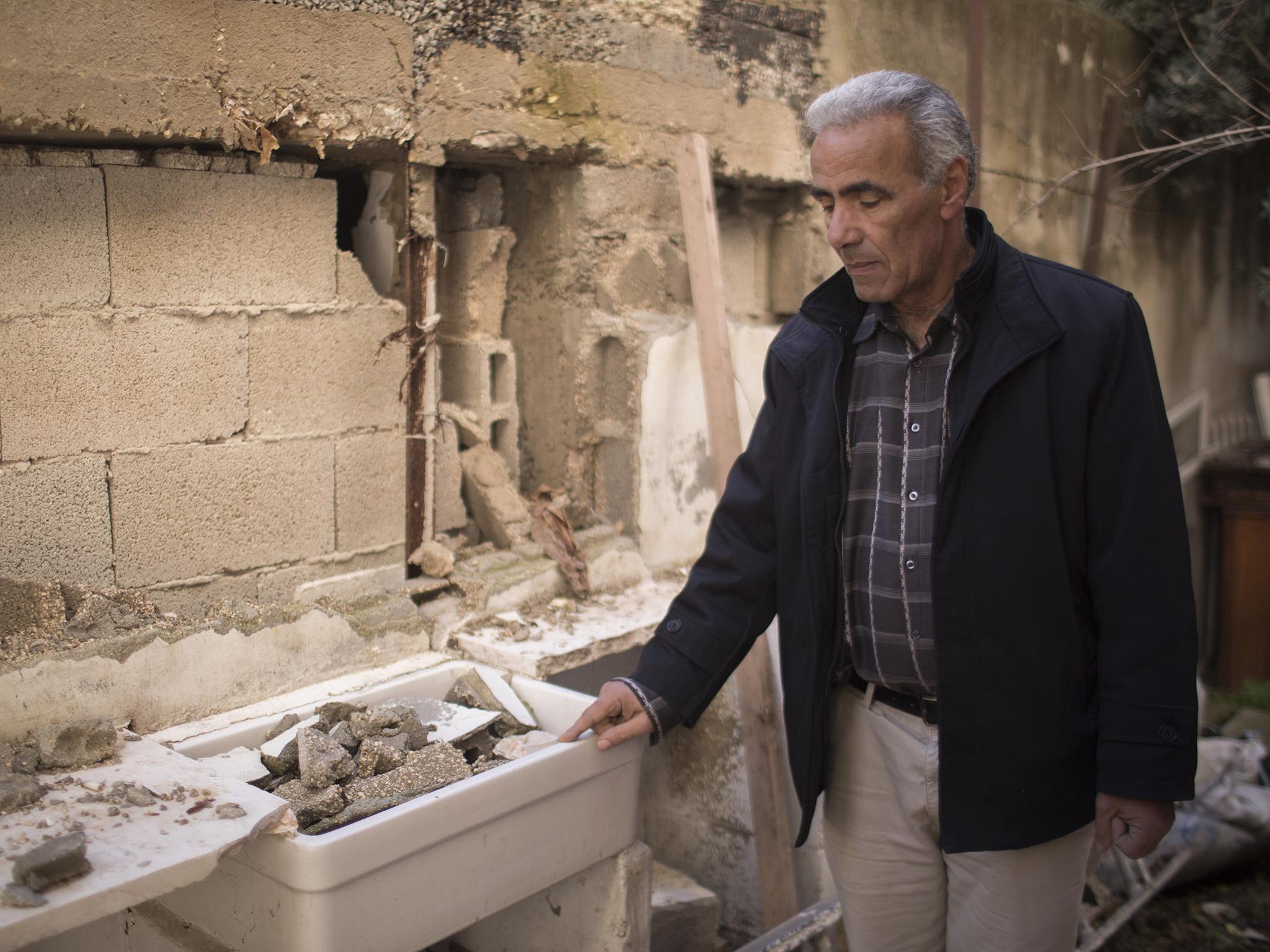A dig to uncover an ancient road in Jerusalem worries Palestinian neighbours
Israeli archaeologists have been digging a tunnel underneath the Wadi Hilweh area, but Palestinian officials are concerned it’s an attempt to end their hopes for a future capital in east Jerusalem, Ruth Eglash and Loveday Morris write

The main road winding through the densely built Arab neighbourhood of Wadi Hilweh is like many others in Jerusalem, lined with convenience stores and often crammed with traffic. There’s little clue to what is happening just yards below the pavement and under the floors of surrounding houses and apartment blocks.
For five years, Israeli archaeologists, supported by a nationalist Jewish organisation, have been digging a tunnel here. Their aim is to uncover what they say was once an important thoroughfare used by worshippers some 2,000 years ago to reach the Jewish holy temple.
Developers envisage an archaeological attraction that would lure millions of visitors keen to walk the same stones as ancient pilgrims, or perhaps even Jesus. Private donors have contributed $75m (£58m) for the Pilgrim’s Road project, and the government has put up $13m more.
The government also plans to build a cable car to ferry up to 3,000 people an hour into the area where Jerusalem’s holy sites are concentrated, dropping visitors off outside the tunnel’s entrance.
But in the conflict between Israelis and Palestinians, where land and each side’s historical connection to it is front and centre, the endeavor is inevitably mired in controversy. Palestinian officials say it is an attempt to literally pull their hopes for a future capital in east Jerusalem from under their feet.

The City of David Foundation, the organisation behind the project, is already engaged in a battle above ground to expand the Jewish presence in Wadi Hilweh, located in the eastern part of the city occupied by Israel after the 1967 war. The foundation, known by its Hebrew initials Elad, considers the area around Wadi Hilweh to be of particular religious significance to Jews because it is believed to be where King David of the Bible built his city.
Local monitoring groups say the organisation has improperly used absentee property laws to evict Palestinian families from the area and pressured others to sell, enabling roughly 1,000 Jewish Israelis to settle there. The foundation says all its purchases are legal.
The entrance to the tunnel is a few hundred yards from the Old City walls. It is not expected to open to the public for several years yet, but work is well underway with most of the 640m tunnel already cleared.
A team of archaeologists and excavators work from early in the morning until late at night, listening to Eric Clapton as they package mud and dirt into canvas bags. Fluorescent lighting illuminates the stone-paved path that leads down the hillside from the Old City walls toward the Pool of Siloam, which is mentioned in the Old and New Testaments.
“Thousands of pilgrims once walked up this street. It was the main pathway that brought people from the south up to the temple. There were many other streets but not as monumental as this,” says Joel Uziel, an archaeologist who oversees the project for the Israel Antiquities Authority.
But critics say the project is the most prominent example of Israel’s effort to use archaeological and tourism sites to legitimise settlement activity and promote a Jewish connection to Jerusalem at the expense of the Palestinians.
“It is very clear what they want: a Jewish majority here and in east Jerusalem,” says local activist Jawad Siyam, who heads the Wadi Hilweh Information Centre.
He estimates the tunnel runs beneath 200 Arab homes, including 30 that have been seriously damaged by the digging.

Uziel dates the road to about AD30. It is believed to have been built by King Herod and was destroyed, Uziel says, during the Jewish revolt against the Romans, which resulted in the destruction of the second Jewish temple in AD70.
The road was originally discovered by the British archaeologists Frederick Bliss and Archibald Dickie in the 1890s. The two excavated here under the auspices of the London-based Palestine Exploration Fund, finding parts of the road near the top of the hill and an ancient drainage system below it.
In 2005, Israeli archaeologist Ronny Reich undertook work to clear that same drainage system. His excavations drew protests and a lawsuit from local residents, but it was rejected by the Israeli Supreme Court. During that work, Reich also discovered the Siloam pool deep in the valley below Wadi Hilweh, as well as three steps leading up to the Herodian street.
“Bliss and Dickie dug only a small part of the road,” Uziel says. “But archaeologists now have new techniques and the ability to find new information so if I dig bigger, I’ll get more information that is more accurate.”
The current dig has revealed a further 140m of intact Herodian-style paving stones, as wide as 6m in some places. Remains of what might have been shops or homes line at least one side.
The project, however, has been faulted by some critics for ignoring layers of history above. Yonathan Mizrachi, an Israeli archaeologist and executive director of Emek Shaveh, an Israeli group that defends cultural heritage, says the project overlooks many other periods of Jerusalem’s past and makes no reference to the present Palestinian village that sits above it.
“If you are Israeli or Jewish then you feel very excited by what is shown here,” he adds. “But the history of Jerusalem does not only belong to the Israelis.”
In response, the Israel Antiquities Authority said the criticisms were political and that the project would “hold deep significance to countless millions of people from all over the world, and from many faiths and backgrounds.”
Arafat Hamdan, a resident of Wadi Hilweh, has more immediate concerns. He says his brick home, built in the early 1960s by his father, has subsided six inches since the excavation started. One external wall has collapsed.

“How will we benefit from this project?” Hamdan asks. “Nothing will ever be done to benefit the Arabs in this area. They want their project, but they do not want us to be seen here.”
In a small annexe off the main house, Hamdan’s daughter-in-law Alaa, pointed out the fissures now marring the walls. She says they appeared over the last year.
“We know they are looking for something they say belongs to them, but we really have no idea what it is,” she said. “Surely it’s illegal to dig under someone’s house like this.”
Doron Spielman, vice president of the City of David Foundation, dismisses such complaints.
“We won’t not dig an archaeological site just because it upsets people,” he says. “History should be allowed to speak for itself, and the City of David is evidence that the Jews have been here for 3,000 years.”
Because it’s classified as archaeology, the project’s plans did not require the standard planning permission required for buildings. But the Israel Nature and Parks Authority, which oversees the historic areas containing Old City, says the foundation’s work has all the necessary permits.
The tunnel has been reinforced with girders aimed at preventing subsidence of buildings above, and, Spielman says, a safety engineer has checked on all complaints he received to date about crumbling homes.
The Washington Post’s Sufian Taha contributed to this report.

Support free-thinking journalism and subscribe to Independent Minds
© Washington Post
Join our commenting forum
Join thought-provoking conversations, follow other Independent readers and see their replies
Comments
Bookmark popover
Removed from bookmarks